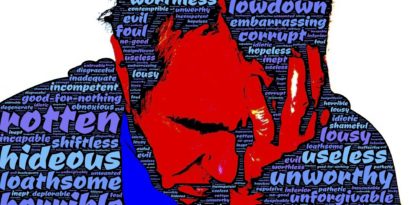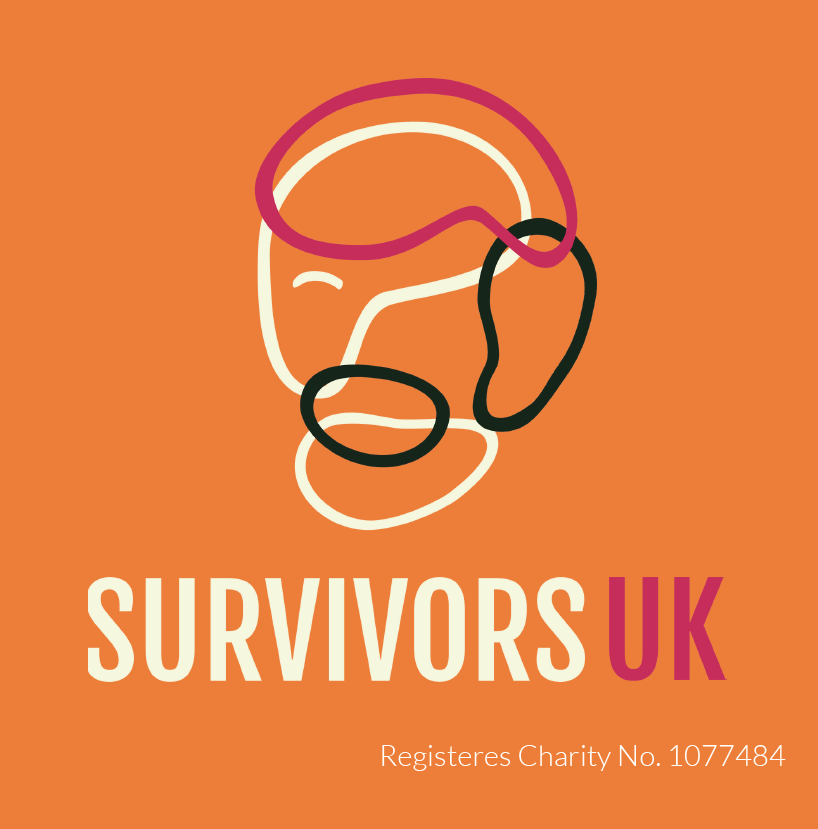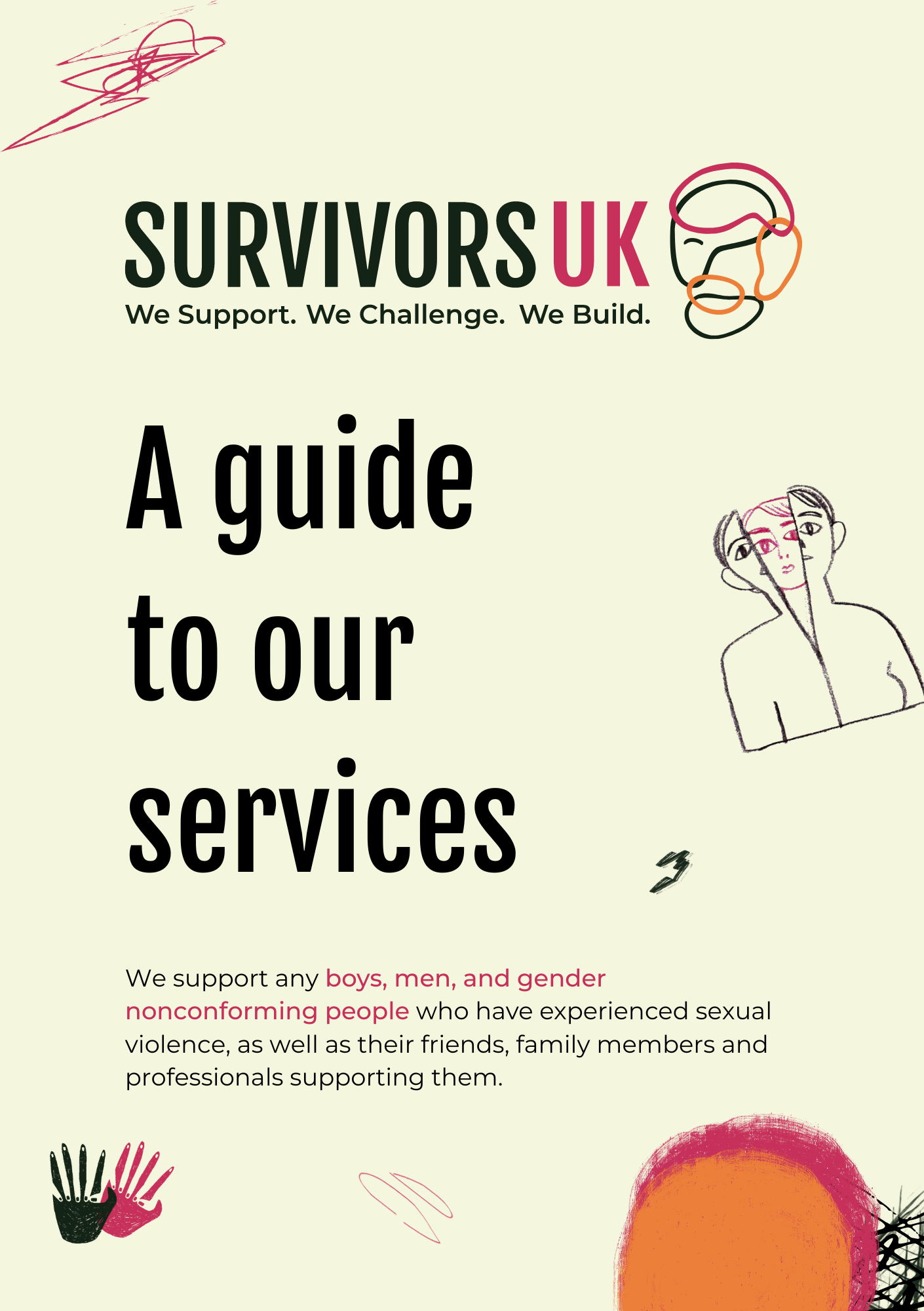
My Story Of Recovery
You are not a victim, you are a survivor.
This is not a story of sympathy, but of recovery.
August, 31st 1997.
Most of you will remember where you were on this date, Princess Diana was being reported to have died in Paris.
I remember because it is one of the many days I had been subjected to sexual abuse. I don’t remember any other dates, and if that event hadn’t happened, I’m not sure I could put a year let alone month on the times.
Understanding it now, I was groomed and made to feel special. I didn’t really know what was happening until it was too late. Being the age I was, I wanted it to stop, but didn’t know how or what to do.
Eventually it did stop.
I coped with life for 17 years after, I was angry, I was happy, I was an alcoholic, I stopped drinking, I worked, I was trouble, I was violent, I was fun, I was caring, I wanted to say something, I wanted to hide it, eventually I settled down. I was coping.
PTSD and Depression.
Nearly 3 years ago I received a phone call from the police. Did I want to give evidence? I knew exactly what this was about. I had battled for a good 10 years to find a place in my head where the memories of what happened were locked away. No, I did not want to give evidence; I thought I was in a good place, and settling down.
6 months later, a letter from Thames Valley Police – “We would like to speak to you in relation to a crime we are investigating where you were the victim.”
Straight in the recycling bin, again, I knew it would bring up too many memories and I was happy now.
3 Months later another letter, this time hand written: “We tried to call but you were out, please contact DC ****” They had knocked at my door. I rang the number, and decided to give evidence. I also found out another victim was too, so I was not alone.
The day I went to give a statement was an evening, after work. I said as much as I could remember. If I went back now, there would be loads more I could say. At the time though, I said as much as I could remember and cope with.
I had to go back to the police station about 6 or 7 more times, to fill in forms, and review my statements. Every time I was having what I now know as flashbacks.
I was struggling to sleep, and having unpredictable moods after. I thought I was doing well, coping on my own.
I realise now, I wasn’t. I shouted and argued, got frustrated easily.
Eventually I told Gem everything. All I could think is she wouldn’t want “damaged goods”, and she wouldn’t want me anymore.
A usual thought, especially if I told anyone what had happened to me. I was dirty, damaged goods. I may not have been believed or told to get on with it. Too late now.
Over the next year, I had one of the best days of my life, I got married, and we had an amazing honeymoon. Unfortunately, I was slowly deteriorating.
The court date had originally been set for August. This had to be moved as we were honeymooning. It was rescheduled for September, and my mind was remembering more and more of the events of my past.
I was struggling to contain any new information, my head was full, and I was getting nervous about the upcoming date when I had to be in court to give evidence.
I gave my evidence, which was one of the hardest things I’ve ever done. I was struggling after, and could not concentrate at work or home. Life was plodding along, but all I had on my mind was what happened to me.
I was having daily flashbacks, was unable to sleep, extreme nightmares and horrendous thoughts and feelings. I was getting more and more anxious about going out, especially on my own. I wasn’t happy, and was losing interest in everything.
I tried to deal with it, going to work and carrying on with life. The manager at work was the first person who said I might have PTSD. Eventually, I plucked up the courage to see the doctor. She confirmed I had depression and PTSD.
Before having depression I thought I had a clear understanding of what it was. How wrong I was. I thought people should just get on with life and eventually it would pass. I thought people with depression were lazy and just needed a kick up the bum and a “life’s not that bad”.
I realised, quickly, that was the last thing I needed.
My body was trying to live but my head was trying to die.
One of the worst feelings was guilt. Guilty that I had PTSD and guilty that other people were distressed because of me. I was letting people down and didn’t know how to reverse this situation. I started looking for, in my eyes and head, an easy way out.
Symptoms of PTSD – Re-experiencing symptoms
• Upsetting memories when you don’t want them (Images, feelings, sensations, sounds, smells, tastes)
• Nightmares of the trauma, or threats
• Dissociative reaction (Flashback) lose touch with surroundings
• Physical or emotionally upset when reminded of trauma
• Hyper – Arousal
• Constantly looking out for danger – For me this was in supermarkets, or in busy situations
• Sleeping problems – At the worst point, to have 4 hours sleep was a good night. I also regularly lay in bed, tears streaming uncontrollably.
• Lack of concentration – My brain was full, and I feel slowly this is getting better
• Angry/Frightened – Uncontrollable fits of anger, resulting again in worthless feelings and a want to hurt myself
• Avoidance
• Feeling disconnected or numb – This came across especially after a bad flashback
• Trying not to talk about what happened – I found it extremely difficult to talk about what happened.
Daily I contemplated suicide, and daily I would fight with myself in my head to not carry it out. After a terrifying experience of uncontrollable thoughts of using my car to hurt people, and myself, I ended up in Berkshire Mental Health Hospital at Prospect Park. This was a real life saver.
I felt safe for the first time in a while, and felt as if my body was also able to refresh.
It was also a bit of rest bite for my wife. She has been immense in supporting me the last 2 years, and even more the last 8 months.
PTSD is a strange condition. Post Traumatic Stress Disorder. The flashbacks, the nightmares, the thoughts, the feelings and the sleepless nights.
The human brain is an amazing thing. It is also very fragile. The amygdala is the brain’s “alarm system”. It works to keep us safe by constantly being on the lookout for threat. It records all information after you’ve had a threat.
What you see, feel, smell, touch or taste. If any of these senses are triggered, the amygdale can jump into action – even if there is nothing in reality to be worried about.
Many of you who know me would probably say I’m fairly confident. As recently as Christmas, I couldn’t go shopping on my own. My anxiety was sky high, I struggled to be in shops on my own, I didn’t want to be near anyone I didn’t know on my own.
Trying to cope with PTSD there are unintended consequences of trying to stay safe. Avoiding doing things except for safe activities, I would never learn that I was capable of coping with normal levels of risk. Fighting and becoming angry as a way of defending myself, just causes unnecessary conflict. And avoiding thinking about the trauma, means memories stay unprocessed and retain their hold. It becomes a vicious circle.
February 2015: I went on a 6 week “Understanding PTSD course” This to me was the first step to recovery. Actually understanding what my condition was, and how best to start dealing with it. I started to really feel there may be a light at the end of the tunnel.
April 2015: I started EMDR (Eye Movement Desensitisation Reprocessing) This involves holding an image of the trauma in my mind, while the therapist guides through specific eye movements. I struggled at first to really keep the image in my mind with my eyes open. The therapist decided to use hand buzzers. That would flick side to side while I held them, so I could really visualise the image.
After nearly each session, I thankfully played cricket. This was a great distraction, and I feel really helped me process the memories sub consciously. I was though, mentally shattered after the sessions. It would take me a couple of days to recover.
EMDR worked amazingly well, the images started being processed within one session, and I was feeling so much better. I answered questions that I had in my head. The flashbacks were fainter and reprocessing, the nightmares almost gone, the anxiety less, and my outlook on life was changing.
I was happier, I was getting the old, mischievous, fun and bubbly me back. Last week I was told by my therapist I’m “pretty much” PTSD free. There are a few niggling things, but I feel I have the tools to cope and the positive temperament to keep getting better.
Depression and PTSD, It grips you, it can shape you, and it will keep holding you. In my opinion the first step to recovery is understanding your condition. From then, it’s down to the individual to find the right treatment to start getting better.
I’m so thankful to the people who have supported me.
My Wife, she has seen me in my darkest place, and she still has held and loved me, and herself stayed strong
My Dad, who gave evidence in court
My Mother and Father in law, who not only took me in while I was at my worst, also supported Gem and were always at the end of the phone
My Brother and Sister in law, for looking after Gem and I
Aaron G for the visits and chats
My Brothers and Mum, whom I didn’t tell until the end of the court case, again have been very supportive in my recovery
My close Friends, who have been amazing in not only looking after me
My work Colleagues for spotting my condition and covering me when I was off
And lastly the NHS. A service that you have all paid for, and has treated me so well.
Without all this and these people, I’m not sure I would be here to tell my story.






